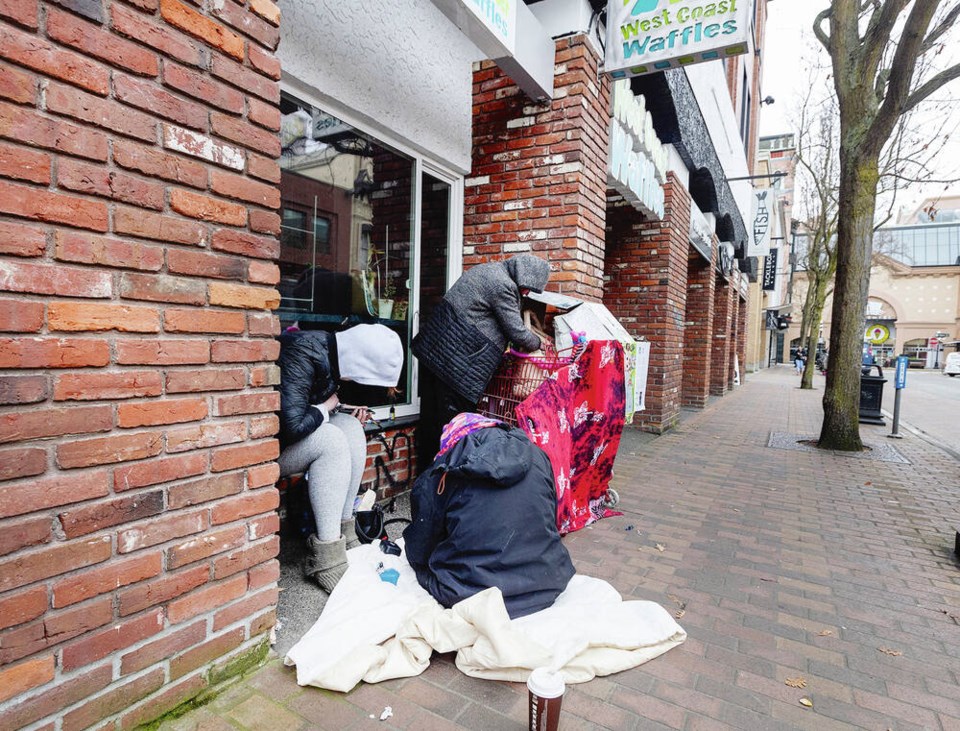Victoria residents will get a chance to direct and shape how the City of Victoria tackles safety.
Starting next week, residents will be tapped, through surveys and focus groups, to offer their thoughts on safety to the mayor’s 10-member task force.
That panel, which includes Victoria Mayor Marianne Alto, Police Chief Del Manak, Fire Chief Daniel Atkinson and medical health officer Mike Benusic among others, has been meeting for the past eight months to develop a Community Safety and Well-Being Plan.
And now, the panel wants to know if its work so far aligns with the concerns of the broader community.
“The point of all of this is to check, frankly, whether what we think are the issues, are the issues,” said Alto. “Is what we think we know actually true?”
The mayor said that it’s also a chance to determine what the panel doesn’t know and open up to that kind of learning.
The engagement, which will happen over several weeks and involve both a broad survey and targeted surveys to specific groups as well as small focus groups led by community facilitators, will help the panel round out its thoughts as it prepares a plan and recommendations to be released in September.
The plan is expected to include immediate actions to reduce crime and public disorder, along with longer-term solutions.
The smaller focus groups intend to cover all aspects of the city, including the business community, community associations, seniors, development groups, those groups who are often missed in broad surveys and everything in between.
Alto said through the panel’s monthly meetings they’ve reinforced what they already knew about the problems the city is dealing with, but they have also started to look at the flip side of things.
Alto said it’s easy enough to find out what people’s concerns are, but they have also wanted to find out what people see as the positives of living in Victoria.
“Because we need to be able to figure out what’s working, as well as what we need to improve,” she said.
To this point a lot of work has been done on data collection with measurables that will compare Victoria with other regions, as well as gathering information on what has worked in other cities that could be applied here.
Alto hopes when the panel does come back to council in the fall with a suite of recommendations around public safety, there are chances to lean into the city’s new approach to problem solving.
Last week, Alto made it clear the city would be prepared to take on broader responsibilities — often the bailiwick of senior governments in the past — but would also be prepared to bill those senior governments to cover the costs of solutions.
“The idea is to come back in September and really challenge council into saying, look, if you really want to address a 21st-century version of an emerging, evolving city that is now dealing with massively urban problems, unlike any that they’ve ever faced before, then you need to think really far outside the box,” she said.
Alto said problems will continue to be downloaded on cities and while it might be frustrating, the job is to govern and you need to figure out how to deal with it.
“I believe that local government can actually deal best with local issues because no one knows better the local people and the residents and the issues that are there,” she said. “If we have to move into areas that have traditionally not been municipal, I’m OK with that because I think we just need to get the job done. If that means that we have to do the work and then find a way to pay for it. That’s how it has to happen.”
“It’s time for us now to do what we need to do. We can’t wait any longer. We can’t wait for other people to do this work,” she said.
To that end, Alto said there’s a chance some of the work on safety might not wait until the fall, when the plan comes to council, as the panel does not want to sit on good ideas that could immediately be implemented.
She said they don’t want to leap ahead of the process, but there could be opportunities in the next few months that the city can seize on.
The plan being developed by the panel is supported by the Canadian Municipal Network on Crime Prevention, a not-for-profit organization with a mandate to reduce crime and foster community safety.
>>> To comment on this article, write a letter to the editor: [email protected]



